EEA Meets Researchers Webinar Report: Trust and Evidence in EdTech
The topics of how EdTech organisations and companies can increase trust in their products and solutions as well as how they can demonstrate their impact and effectiveness were a focus of our latest EEA Meets webinar. The European Edtech Alliance welcomed Alison Clark-Wilson, Professor of Digital Education, University College London, UK and Natalia I. Kucirkova, Professor of Reading and Early Childhood, University of Stavanger, Norway and The Open University, UK., two prominent researchers in their fields, who discussed the critical themes of trust and evidence in educational technology.
This session was organised by the EdTech Strategy Lab, a collaboration between the Jacobs Foundation and the European EdTech Alliance. It focussed on the topic of ensuring that technology in education is both trusted and effective and discussed what can be done collaboratively to foster evidence.
““We don’t insist on large-scale trials of the efficacy and evidence of the impacts of textbooks in the same way that we do within the Edtech sector.””
In discussing the testing of education resources, Alison Clark-Wilson highlighted the discrepancies in impact and efficacy with a distinct burden being placed on the EdTech sector. This stems in part from the fact that the Edtech sector is booming at the moment with multiple products being offered for one solution. Alson Clark-Wilson continued by stating that trust depends on the different stakeholder groups and the focus they have when looking at a product and very often the decision-makers are not the users, who might have a different criteria list.
Ecosystem stakeholders needing to build trust - Alison Clark-Wilson
The Importance of Trust in EdTech
Prof. Alison Clark-Wilson continued by pointing out how important the role of evidence is to build trust and what it means to trust Edtech products or solutions. In summarising how Edtech organisations can address the topic of trust and evidence in their work, Clark-Wilson mentioned the following;
Impact Claims: EdTech products frequently make impact claims that need to be supported by evidence.
Evidence Generation: Companies should actively seek to validate their impact claims through evidence-generation processes.
People Behind the Products: Trust is not only in the product but also in the people behind it. The values and mission of the company play a significant role in building this trust.
Leadership Vision: A strong leadership vision is essential for fostering a culture of evidence generation and trust within the company.
Webinar participants shared that trust in EdTech means something different for educators, companies and end users. For educators, it is important to know they are buying validated products, for companies to build successful long-term relationships and collaboration between stakeholders and for end users to receive quality education through trustworthy and validated products and services.
What trust in an EdTech product or solution can mean - Alison Clark-Wilson
Understanding the impact of EdTech solutions:
Sharing insights about how companies can demonstrate the value and effectiveness of their products and solutions, Prof. Natalia Kucirkova discussed the need to understand the full research cycle, as research is an ongoing endeavour that needs to be included in all stages of a company’s growth. Kucirkova continued by describing key issues that EdTech providers should consider and exhibit in order to enhance their ability to provide evidence:
Multi-dimensional Impact: In measuring the impact of EdTech solutions, it is essential to consider multiple dimensions of impact, including efficacy, effectiveness, ethics, equity and environment, that are relevant for products, people, and processes.
Evidence Portfolio: Building an evidence portfolio is crucial for demonstrating the impact and effectiveness of EdTech products.
Theory of Change: A logic model and theory of change are essential tools to guide evidence planning.
Efficacy and Effectiveness: Both efficacy (performance under controlled conditions) and effectiveness (performance in real-world conditions) are important parts of a company’s evidence portfolio
ICEIE Certifications: Responding to the need for a shared framework, the ICEIE consolidates existing standards and established certifications in the field, considering different weights and types of evidence.
““There is a need to consolidate different types of evidence into various levels based on the company’s maturity and the types of studies conducted. This approach will facilitate decision-making for the multiple stakeholders involved in EdTech evidence.””
Future Directions and Challenges
In an interactive component of the webinar, participants explored what can be done collaboratively to foster evidence in the EdTech sector. It was agreed that there is a need for sustainable and affordable models for EdTech testbeds, providing opportunities that bring the relevant stakeholders together to generate better evidence, and certification processes that are recognised and trusted by procurers. Equally important was the topic of supporting educators and administrators in understanding and trusting research findings. To support solution providers, it was discussed that there is a need to create opportunities to better understand how to incorporate evidence-based design and practice. Additionally, the necessity of unbiased research and evidence as well as collective frameworks was identified as important to participants.
Based on the presentations of both Clark-Wilson and Kucirkova, it is clear that balancing innovation with quality assurance is crucial to ensure that EdTech solutions are both effective and trusted. One of the fundamental principles of the EdTech Strategy lab project was echoed in the discussions outlining that collaborative efforts among stakeholders are essential to foster evidence-based practices in the EdTech ecosystem.
Join the discussion
The EdTech Strategy Lab initiative aims to address challenges of evidence and trust by organising multiple online and in-person events to gather different stakeholders' work, insights and feedback. Make sure to register for upcoming events here!
You can watch the entire webinar here!


